Nội Dung Chính
Page 129
there was (n't), there were(n't)
| Affirmative | Negative |
| Singular There was a stadium. Plural There were a lot of spectators. |
|
There was and there were are the past simple forms of there is and there are. We use there was with singular forms and there were with plural forms. There wasn't and there weren't are the negative forms.
There was a big battle here 2,000 years ago.
There were different events in the Olympics.
There wasn't a cinema here before.
There weren't many cars thirty years ago.
was(n't), were(n't)
| Affirmative | Negative |
| I was hungry. You were hungry. He / She / It was hungry. We / You / They were hungry. | I wasn't thirsty. You weren't thirsty. He / She / It wasn't thirsty. We / You / They weren't thirsty. |
The past simple affirmative form of the verb be is was or were.
I was very quiet in class.
We were tired after the game of football.
The past simple negative form is was not or were not. We usually use the contractions wasn't or weren't.
I wasn't very fit last year.
We weren't in the library yesterday morning.
Past simple: affirmative
| Regular | Irregular |
| I played volleyball. You played basketball. He / She / It played rugby. We / You / They played hockey. | I won a competition. You won a gold medal. He / She / It won a match. We / You / They won a medal. |
We make the affirmative form of past simple regular verbs by adding -ed to the base form of the verb. Note that the past simple has only one form for all persons of the verb.
I played football. You played golf. She played tennis.
Irregular verbs each have their own past simple form.
come → came do→ did go → went
run → ran see → saw swim → swam
win→ won
Usage
We use the past simple to talk about finished actions in the past and actions that happened at a specific time.
We watched that football match last week.
She won an Olympic medal in 2016.
Spelling Rules: past simple affirmative
With the majority of verbs, add -ed.
watch → watched check → checked
With verbs that end in -e, add -d.
like → liked live → lived
With verbs that end in a vowel + single consonant, double the consonant and add -ed.
stop → stopped travel → travelled
Past time expressions
We can use the past simple with a number of time expressions:
last week / month / year / weekend / Monday
in the 
in 1995 / July 1825 yesterday
four days / three weeks / 200 years ago
The time expressions usually go at the end of a sentence or phrase, but they can also go at the beginning.
We visited London last year.
Last year, we visited London.
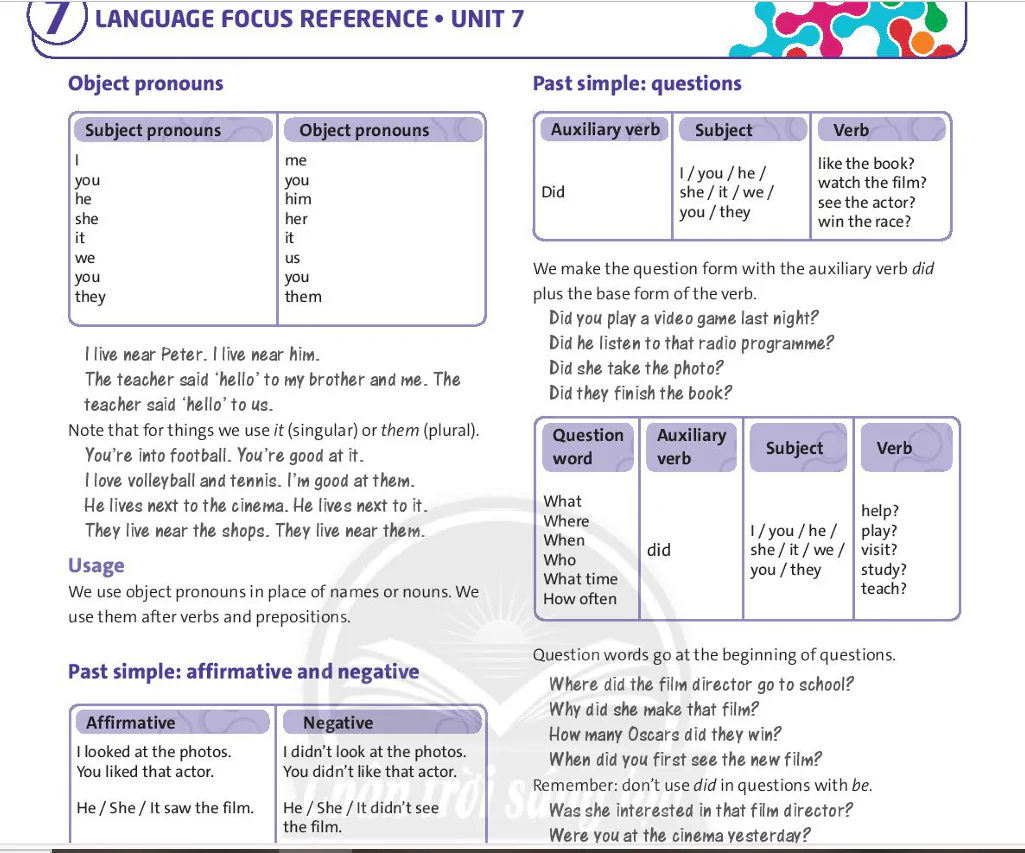
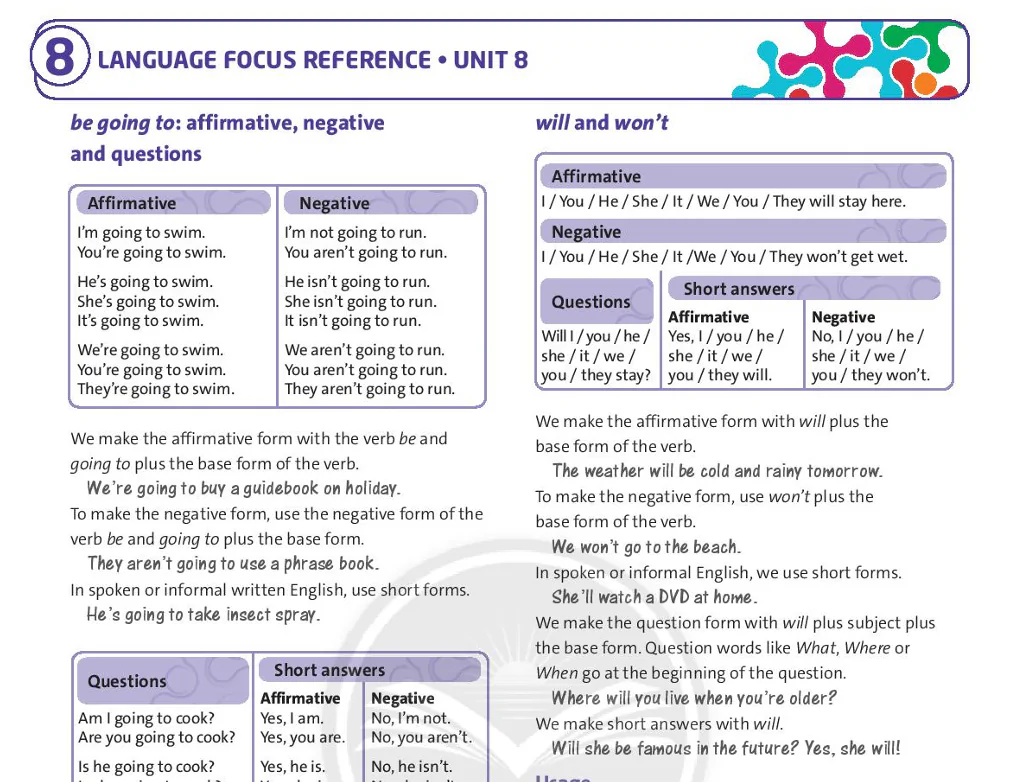
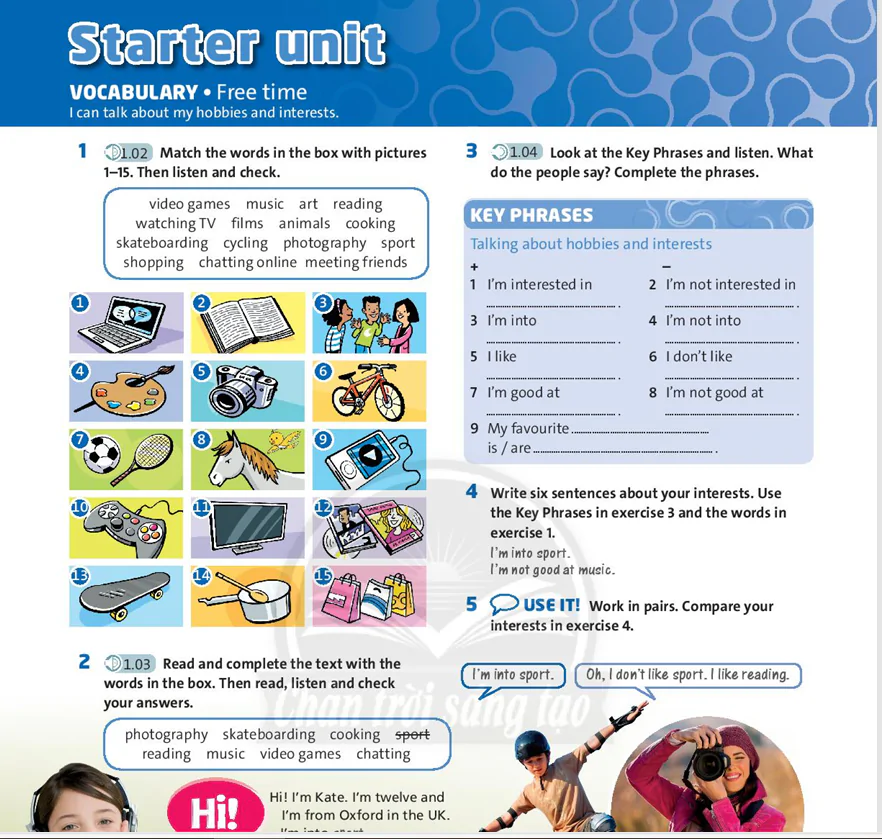
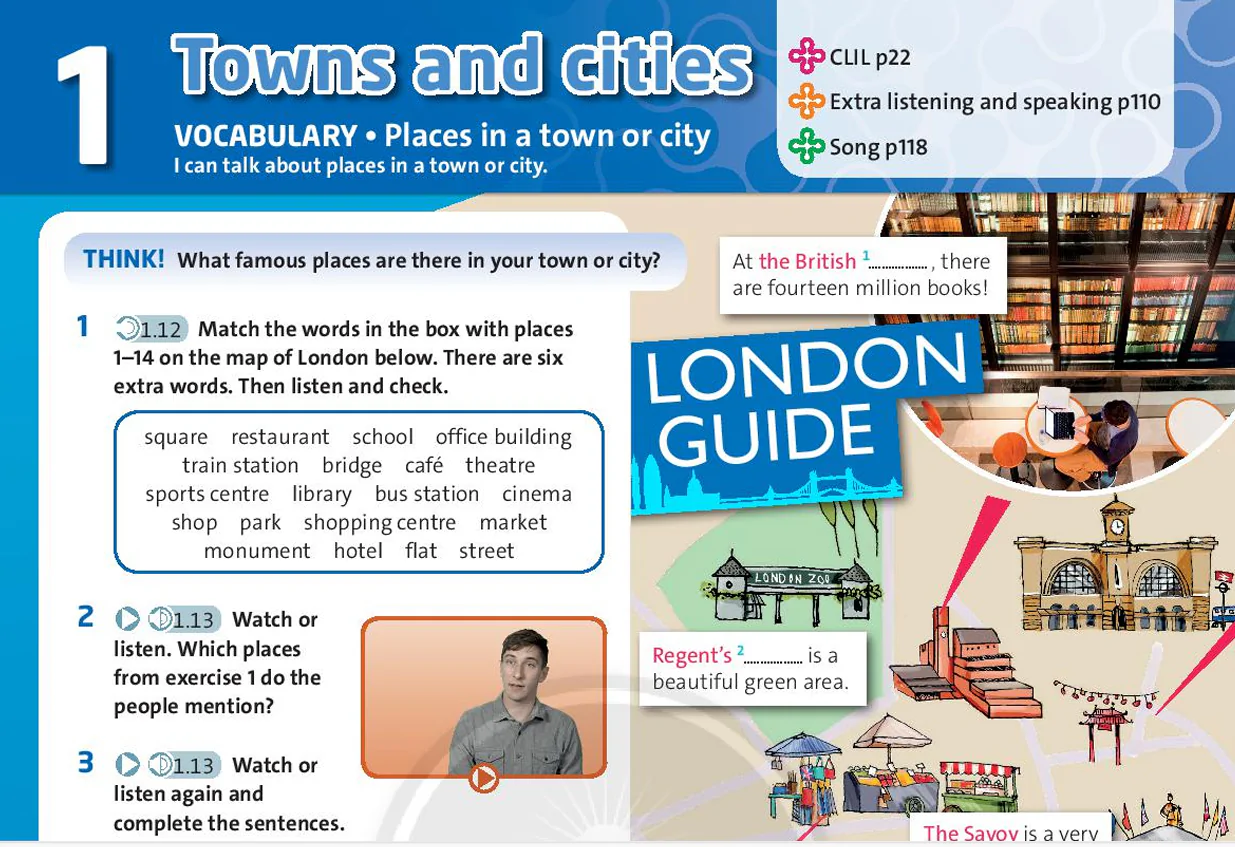
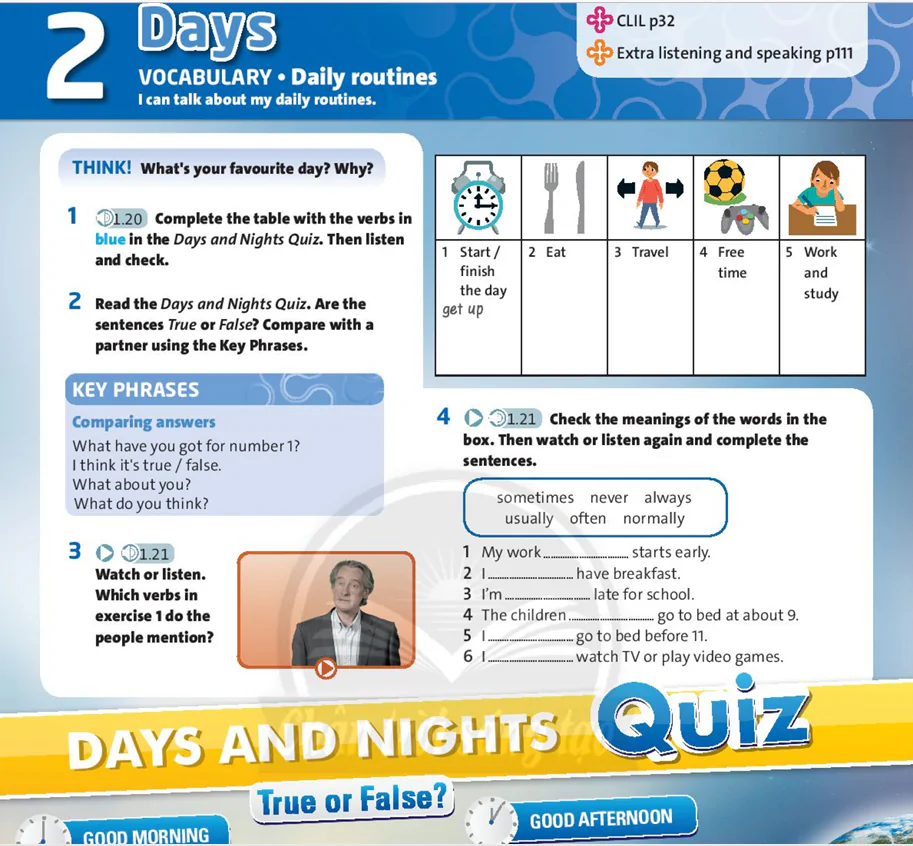
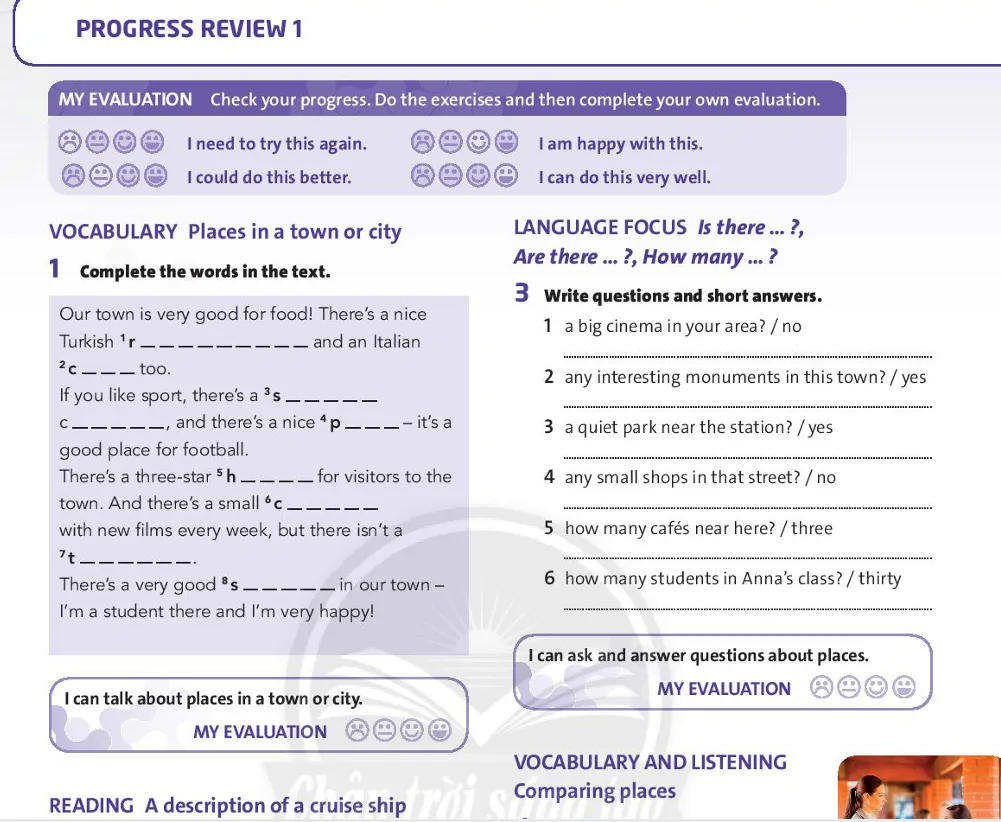
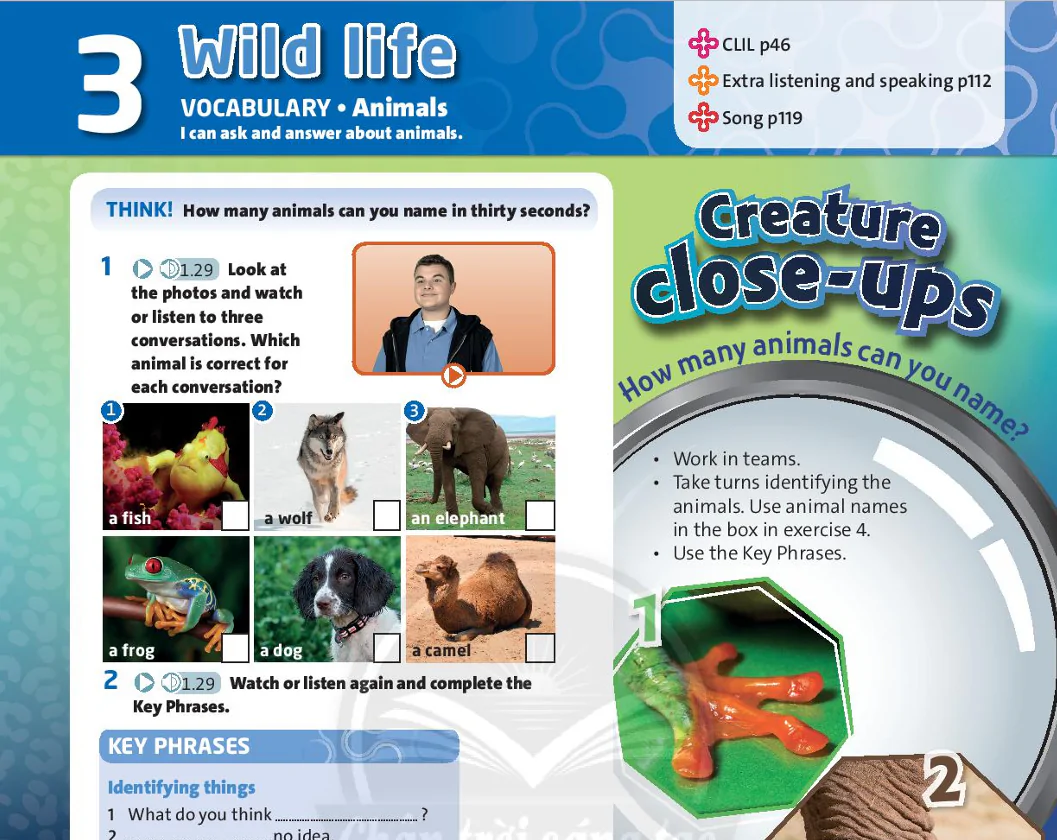

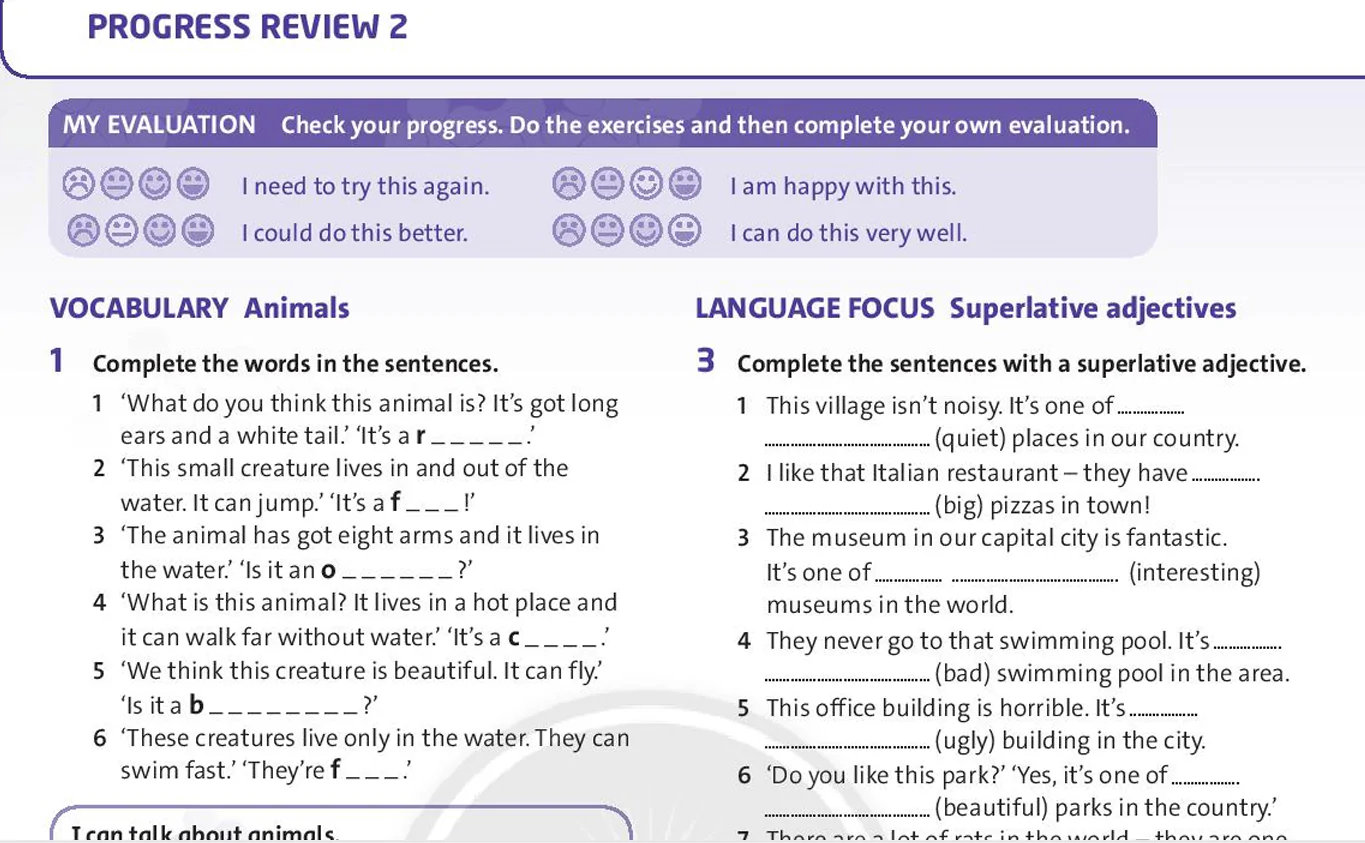

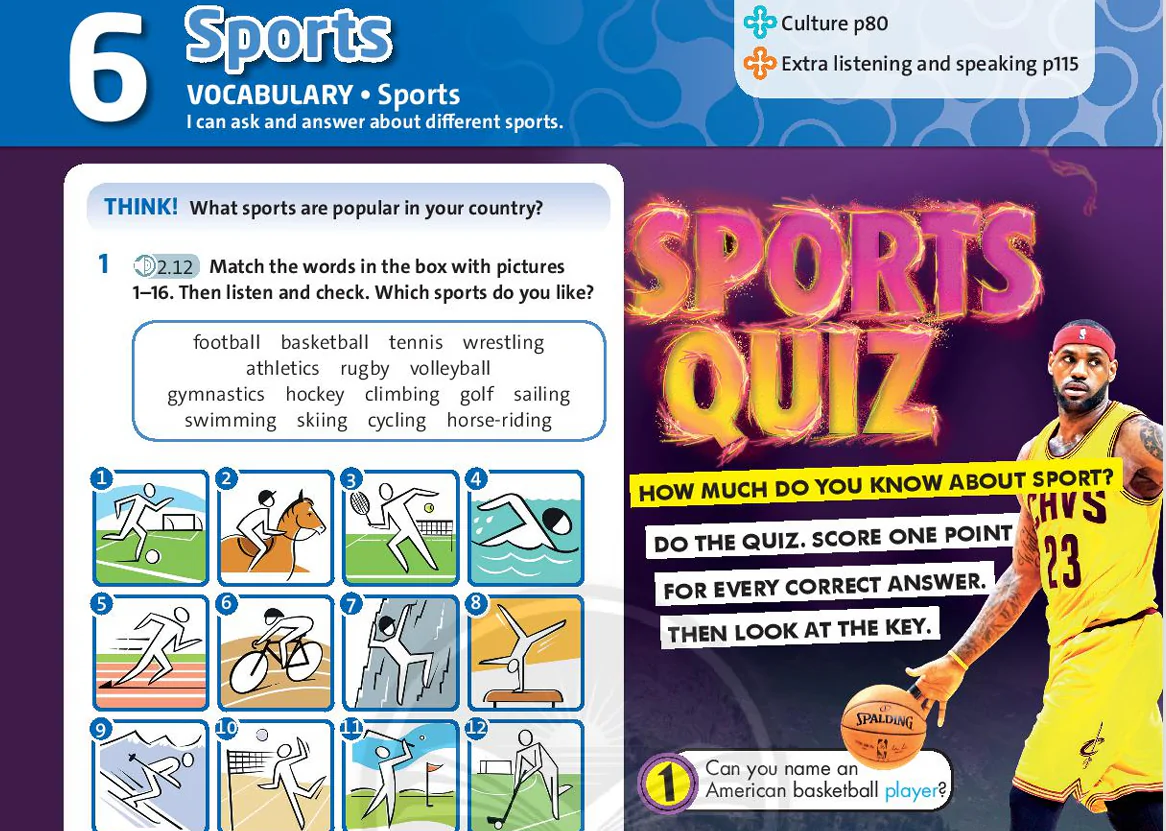
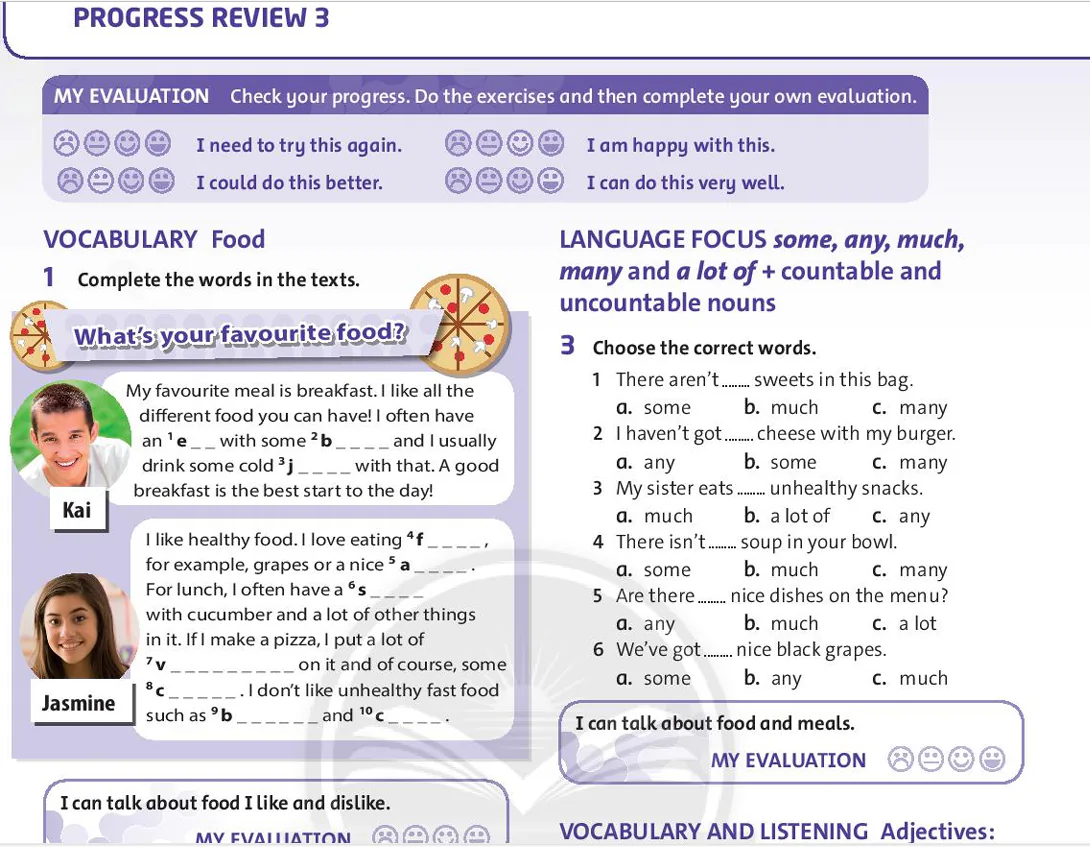
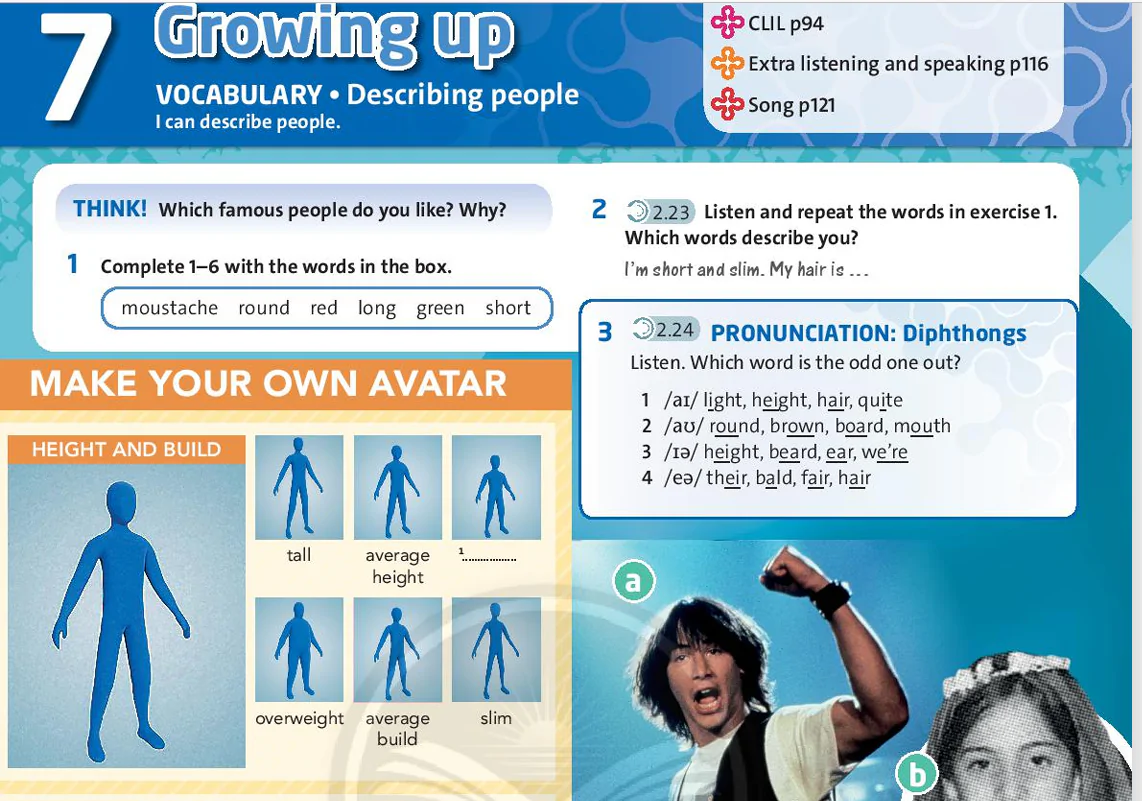
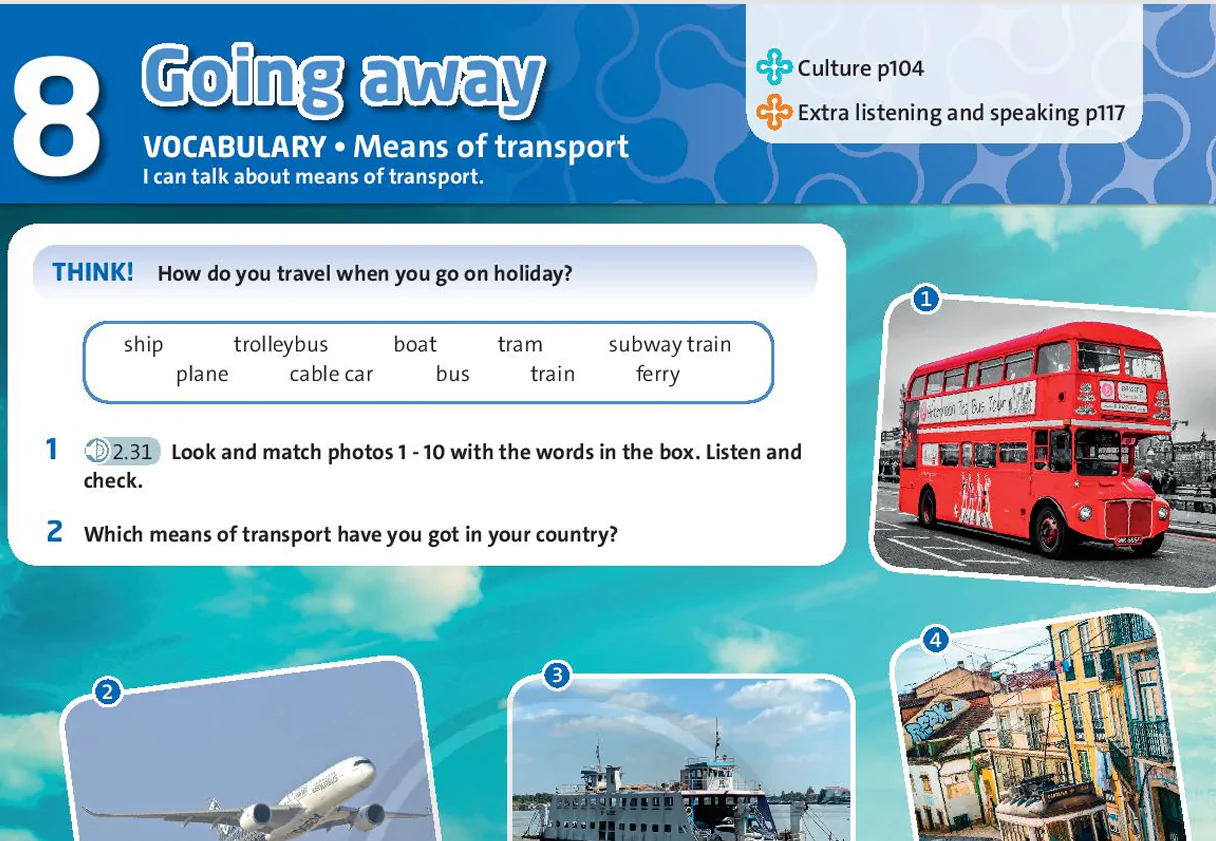
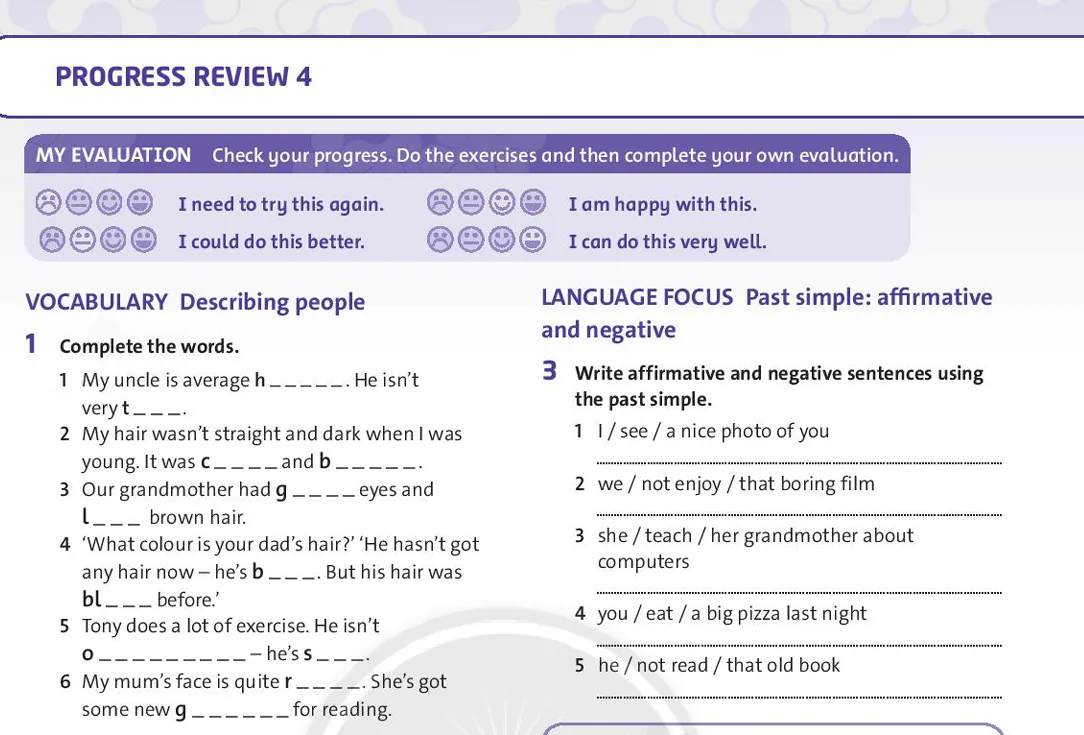
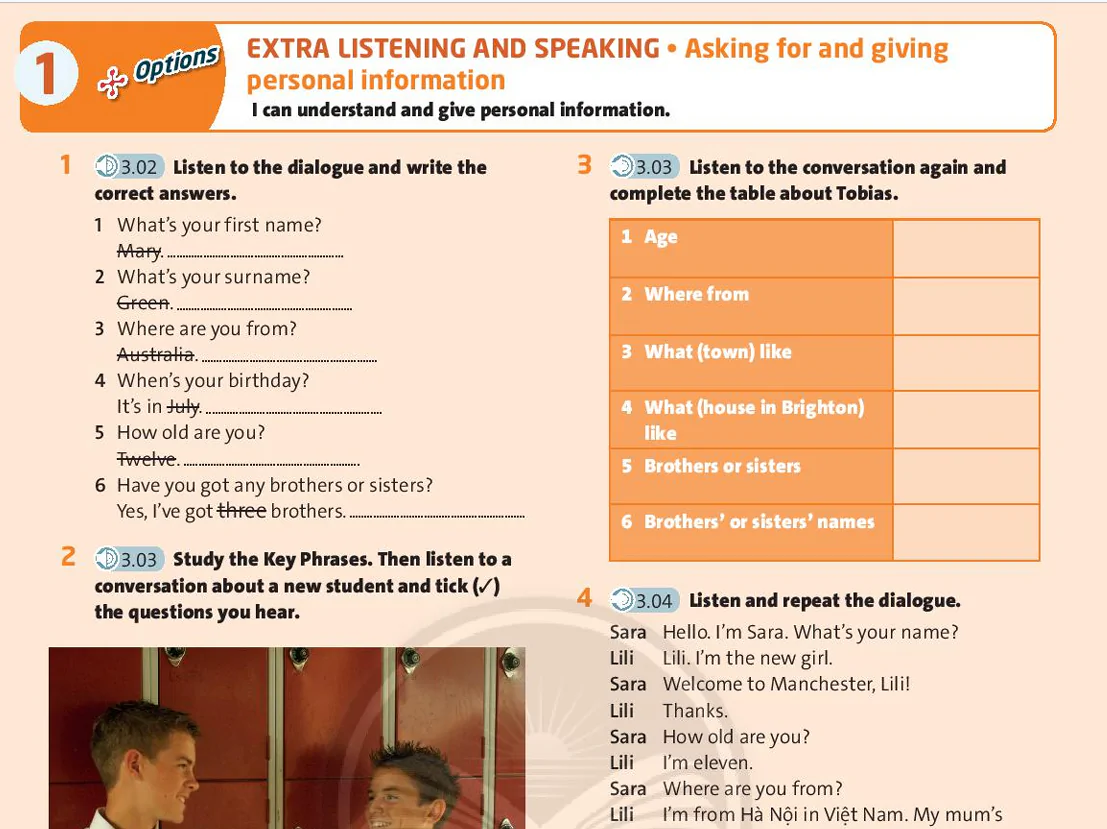
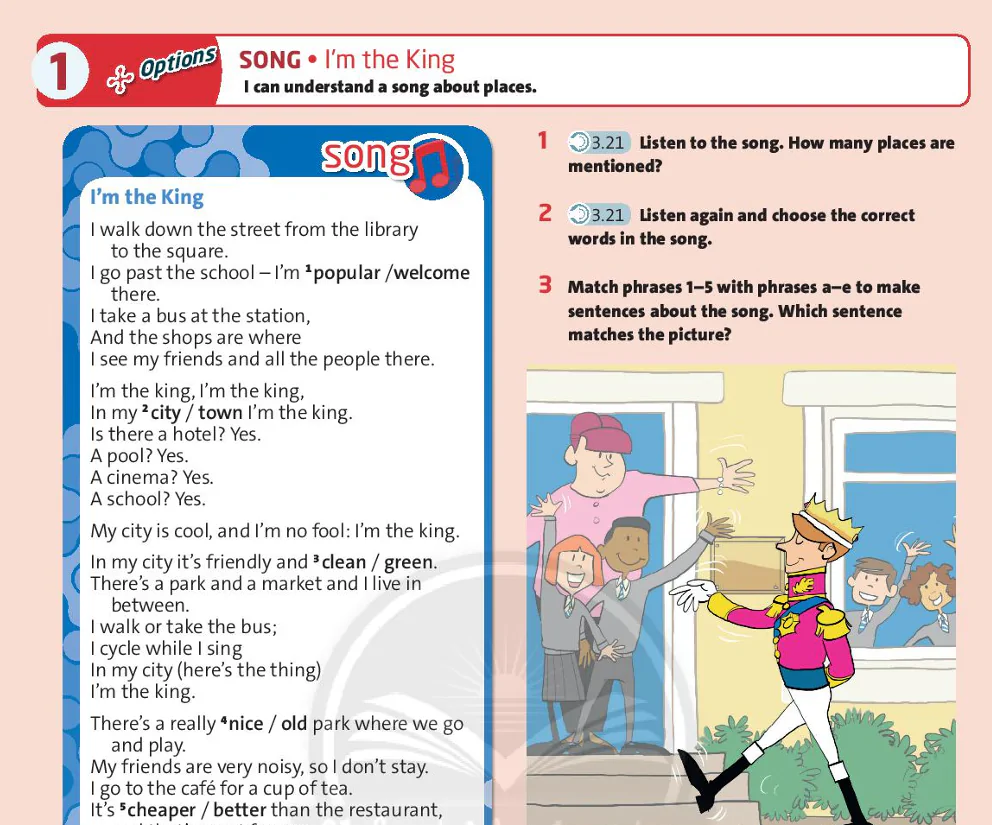
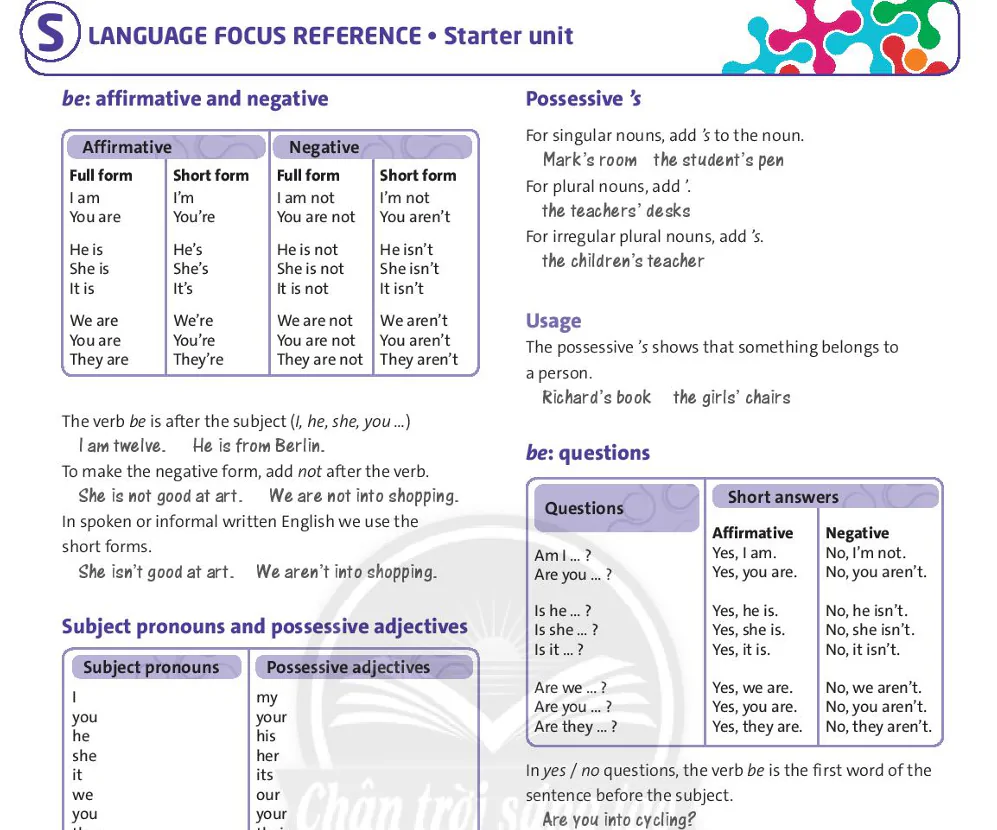
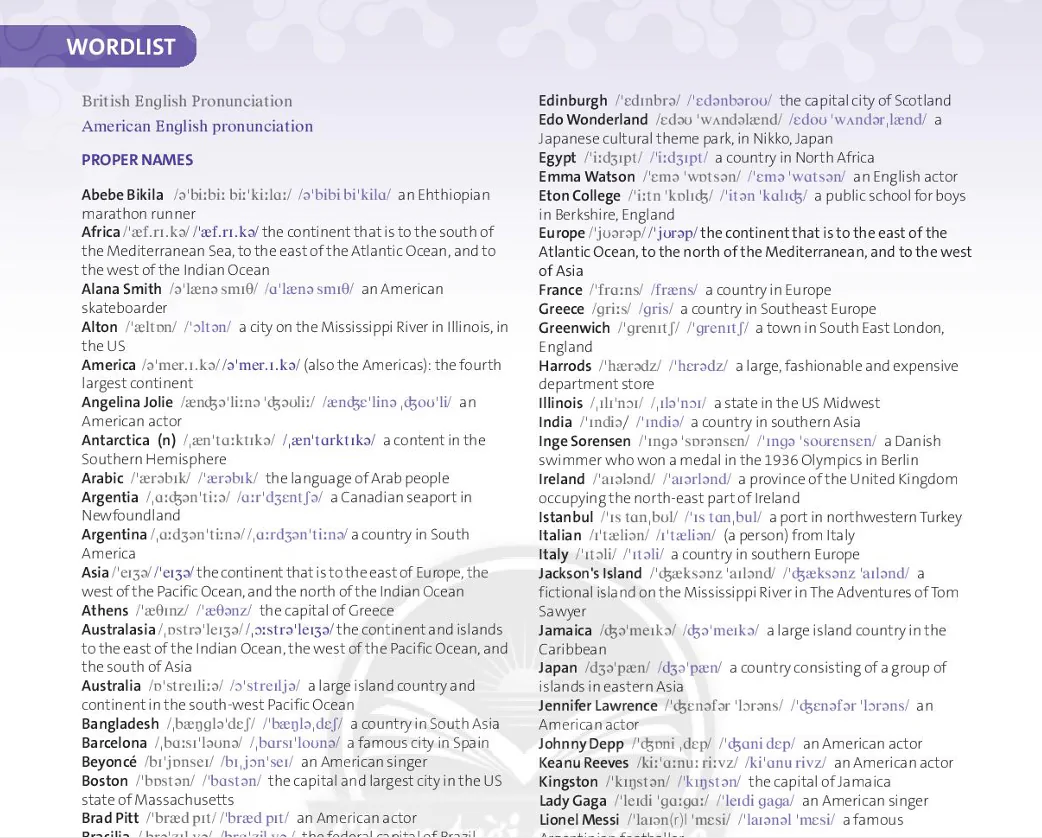




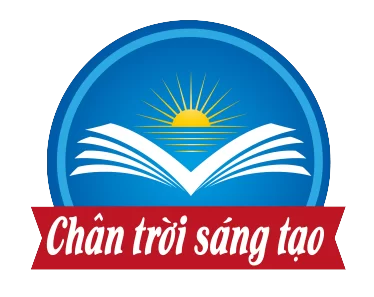














Bình Luận
Để Lại Bình Luận Của Bạn